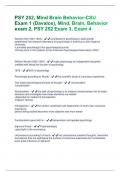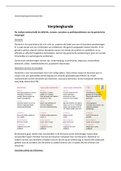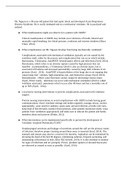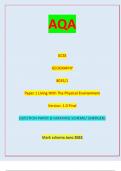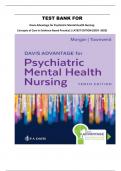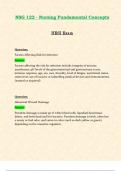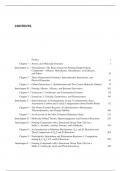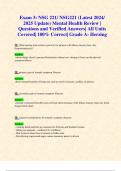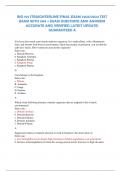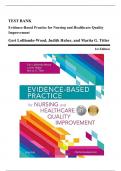Exam (elaborations)
PSY 252, Mind Brain Behavior-CSU Exam 1 (Davalos), Mind, Brain, Behavior exam 2, PSY 252 Exam 3, Questions & Answers Verified 100% Correct!!Exam 4
- Course
- Institution
Stanley Hall () - ️️contributed to psychology's rapid growth established first research laboratory for psychology in America at John Hopkins University -Launched psychology's first psychological journal -Driving force in the creation of the American Psychological Association (APA) Wilhem W...
[Show more]
